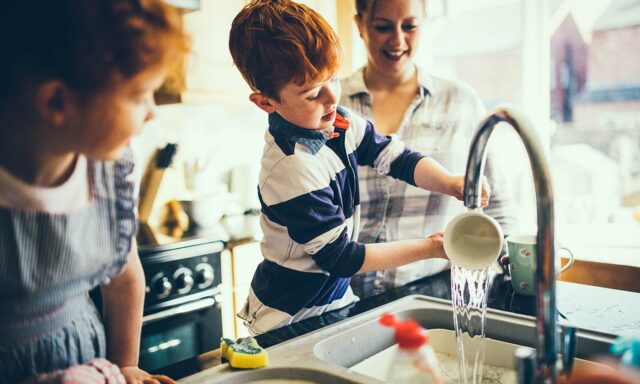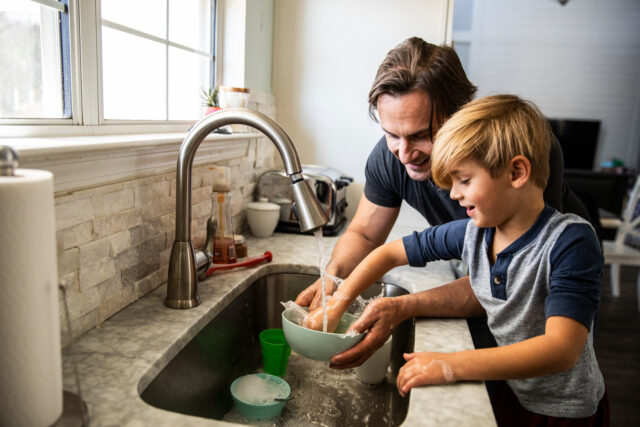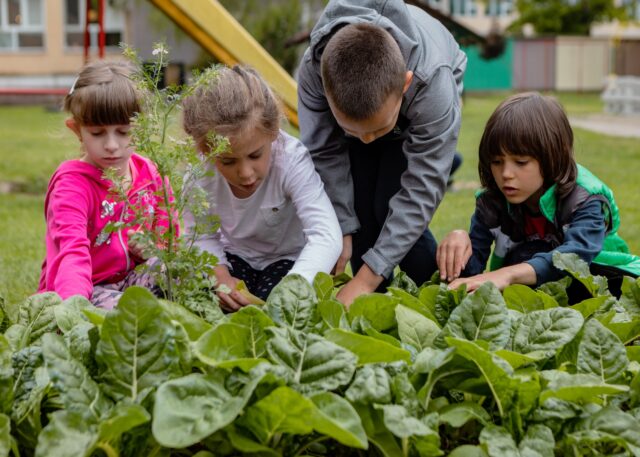
As a parent, it’s important to teach your children the value of responsibility, hard work, and contributing to the family unit. One way to do this is by involving them in daily chores around the house. While it may seem like a daunting task to get your children excited about chores, it can actually be a fun and rewarding experience for both you and your kids.
Involving children in daily chores teaches them important life skills, such as time management, organization, and attention to detail. These skills will not only benefit them in their future careers and personal lives, but also help them develop a strong work ethic from a young age. By giving children chores to do, you are also instilling in them a sense of responsibility and accountability for their actions.
Furthermore, involving children in doing the housework can help strengthen family bonds and create a sense of teamwork. When everyone in the family contributes to the household tasks, it creates a sense of unity and shared responsibility. Additionally, when children are given specific tasks to complete, they feel a sense of pride and accomplishment when they complete them successfully.
Making chores fun and enjoyable can also be a great way to encourage children to participate. By turning chores into games or competitions, children are more likely to engage in the task and view it as a fun activity rather than a tedious chore. This can also help them develop creativity and problem-solving skills as they come up with new and exciting ways to complete the task at hand.
Invite Them to Participate in the Kitchen

Cooking is an essential life skill that every child should learn. Not only does it teach them the basics of nutrition and meal preparation, but it can also be a fun and creative way to spend time together as a family.
To make cooking more enjoyable for children, it’s crucial to involve them in the meal preparation process. Depending on their age and skill level, children can help with a variety of tasks, such as washing vegetables, measuring ingredients, and stirring the pot. For younger children, you can start with simple tasks, like adding toppings to a pizza or stirring batter for cookies.
As they become more comfortable in the kitchen, you can gradually increase their responsibilities and involve them in more complex cooking tasks. If you are willing to ask your kids to help you out in the kitchen, follow this link https://minuterice.com/recipes/rice-stuffed-eggplant-parmesan/.
In addition to helping with meal preparation, you can also encourage your children to come up with their own recipe ideas. This can be a great way to foster creativity and develop their culinary skills. Letting them choose a meal to prepare, or even letting them plan the menu for the week, can give them a sense of ownership and responsibility for their meals.
To keep things interesting and engaging, you can also turn cooking into a fun activity by incorporating games or challenges. For example, you can have a family cook-off or challenge your children to come up with a recipe using a specific ingredient. This can help develop their problem-solving and critical thinking skills while also making cooking a fun and exciting activity.
Not so Much Fun but Always Important

Cleaning may not be the most exciting activity, but it is an essential part of daily life. Involving children in cleaning tasks can not only teach them the importance of a clean and organized living space, but it can also develop a sense of responsibility and teamwork within the family.
To make cleaning more engaging for children, assigning age-appropriate tasks and creating a positive and encouraging environment is really important. For example, young children can help with simple tasks such as putting away toys or wiping down surfaces, while older children can assist with more complex tasks like vacuuming or cleaning the bathroom. It’s important to praise and acknowledge their efforts, no matter how small, to help them realize how many things they can accomplish.
In addition, you can also turn cleaning into a fun and interactive activity. For example, you can play music while they help you with these chores.
Another way to make cleaning more engaging for children is by giving them a sense of ownership over their living space. Letting them decorate their own room or choose the color scheme for a shared space can make them more invested in keeping it clean and organized. Additionally, involving them in the decision-making process of where items should go can teach them the importance of organization.
Getting them Closer to Nature

Gardening is a great way to get your children outside and active while also teaching them about the environment and the importance of sustainability. By involving children in gardening tasks, you can foster a love of nature and help them learn about its importance.
To get started with gardening, you can assign tasks such as planting seeds, watering plants, or weeding the garden.
As your children become more comfortable in the garden, you can involve them in tasks such as pruning or harvesting produce.
You can also let them choose which plants to grow or help them create a design for their own garden. This way, they will become more encouraged in the process.
Gardening can also be a great opportunity to teach children about sustainability and the environment. For example, you can teach them about composting or using natural pest control methods. This can help develop their understanding of the impact that their actions have on the environment and motivate them to adopt more sustainable practices in their daily lives.
Final Thoughts

In conclusion, involving children in daily chores such as cooking, cleaning, and gardening can have numerous benefits beyond just completing necessary tasks. By making these activities fun and engaging, children can develop important life skills such as teamwork, responsibility, creativity, and problem-solving.
In the kitchen, involving children in meal preparation can not only teach them about nutrition and food but also provide an opportunity for quality family time. When it comes to cleaning, assigning age-appropriate tasks and creating a positive environment can teach children about organization and hygiene. Gardening can foster a love of nature and encourage sustainable practices while also providing an opportunity for outdoor activity and learning.
By involving children in these daily chores and making them enjoyable, we can instill important values and skills that will benefit them throughout their lives.












